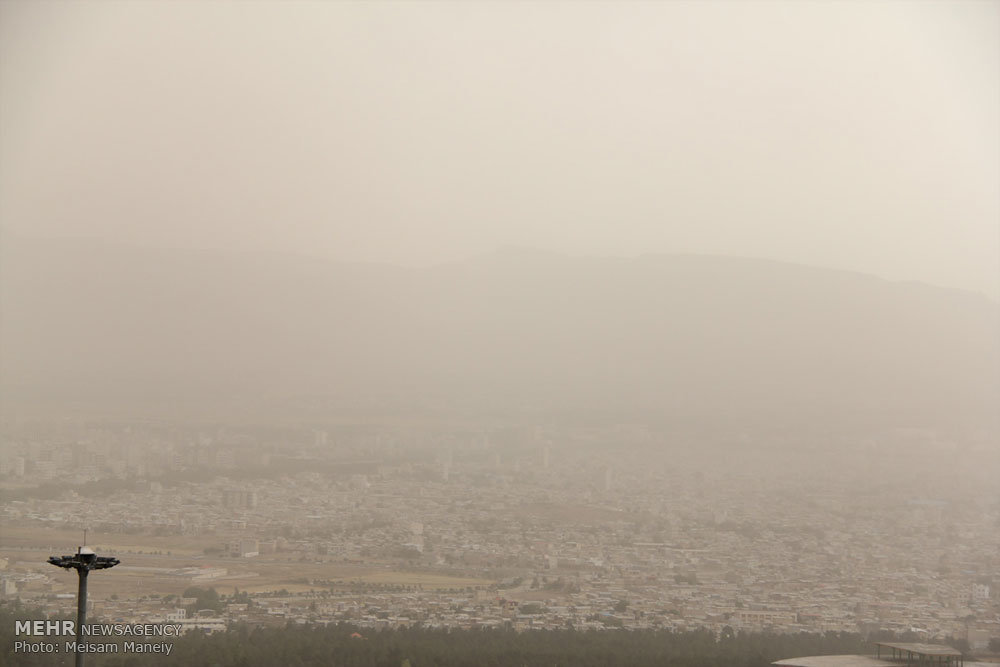Foreign ministry tasked to follow up on dust storms

TEHRAN — Iranian President Hassan Rouhani has tasked the Ministry of Foreign Affairs to follow up on the issue of dust storms which has led to serious health problems and environmental damages in western parts of the country.
Iraq, Syria, and Saudi Arabia are the three countries which have always been a source of such unpleasant storms for Iran. Unfortunately recurrent periods of drought and climate change and wars have worsened the situation over the past years.
Over an emergency meeting attended by ministers of interior, health, agriculture, defense, and transport, as well as some other high ranking officials, the crisis management organization’s director, Esmaeil Najjar, announced that as 80 percent of the dust storms hotspots are mostly located in neighboring countries, the issue must be dealt with internationally.
Additionally, over a phone discussion on Monday, the chief of Iran’s Department of Environment, Masoumeh Ebtekar, urged Iraqi Environment Minister Jassim Abdul-Aziz Hamad to take action against the current situation.
Ebtekar asked the Iraqi minister to join hands with Iran to combat the crippling challenge of dust storms.
Abdul-Aziz Hamad, for his part, noted that they would help Iran to fight with this phenomenon as soon as they succeed in getting back their occupied territories from the ISIS and extremist groups.
Moreover, he pledged to send a delegation of Iraqi experts to Iran in order to renew the previously signed environmental memorandum of understanding between the two countries and put those measures to effect to tackle the crisis.
Khuzestan, Ilam, Lorestan, Kermanshah, Kordestan, Bushehr, Kohgiluyeh-Boyerahmad, and even Tehran, Isfahan, and Alborz are of the provinces which have been dealing with this unwelcomed guest to different extents these days.
Ebtekar has announced that based on online maps the newly unwanted guest is coming from Iraq.
Currently Iran, Iraq and Saudi Arabia each have 3 million, 8 million and 11 million hectares of dust sources respectively.
There have been researches and all the dust hotspots are recognized in Iran and now measures such as planting trees and reviving the wetlands are underway.
Attempting to revive a regional fund, Ban Ki-moon’s global report on the condition of the dust storms, and a resolution to develop local and regional cooperation and collaboration to combat the dust storms approved and adopted in the second United Nations Environment Assembly (UNEA-2) would hopefully sets ground for a future collaboration between different countries which have priority for the issue of dust storms.
But most significantly as Ebtekar has recently pointed this matter gravely relies on the fate of the clashes and wars in the region more specifically in Syria and Iraq.
Due to the war Syria and Iraq don’t have access to a great part of their lands. Therefore, they cannot do much to fight desertification and take environmental measures.
So long as the wars are ongoing those countries’ priority is to put an end to the conflicts and establish peace in their territories.
MQ/MG
